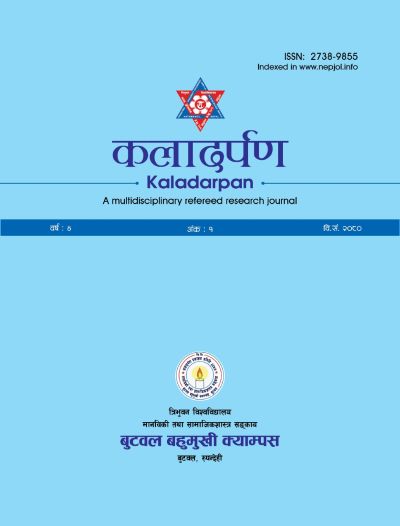Realism at the Philosophical Level in Samuel Beckett's Selected Plays
DOI:
https://doi.org/10.3126/kaladarpan.v4i1.62839Keywords:
existential dilemmas, linguistic structure, mental structure, silence, existential crisisAbstract
The paper embarks on a fascinating journey into the intricate web woven between language and the human mind within the enigmatic world of Samuel Beckett's plays, specifically, Krapp’s Last Tape and Waiting for Godot. Beckett, celebrated for his exploration of existential themes and innovative linguistic style, provides a canvas that invites us to explore how language serves as a mirror to our innermost thoughts and emotions. The paper, primarily, seeks to answer the question: how are linguistic structure and mental structure are interrelated. This research adopts a multidisciplinary approach, drawing insights from linguistics, psychology, and existentialism to dissect carefully chosen plays by Beckett. In doing so, the paper pays special attention to the tools of repetition, silence, and fragmented discourse that Beckett employs to craft his unique narrative. The findings of this research shed light on the remarkable parallels between linguistic and mental structures in Beckett's plays. Through this, I offer fresh insights into the characters' existential struggles and the profound implications of the interplay between language and human existence. Not only does this paper enrich one’s understanding of Beckett's literary genius but also makes meaningful contributions to the realms of literature, linguistics, and philosophy by revealing the profound human dimensions encapsulated within the linguistic labyrinth of existence as portrayed in Beckett's works.




